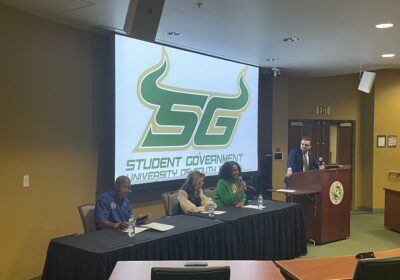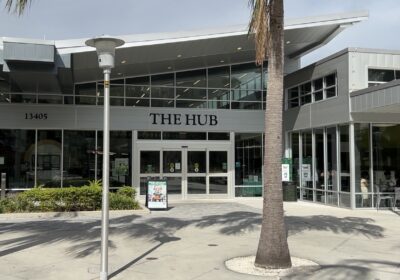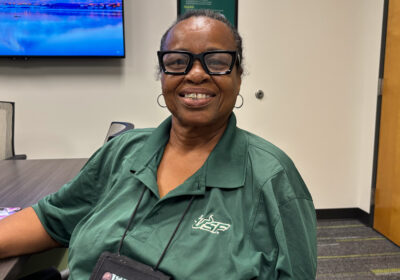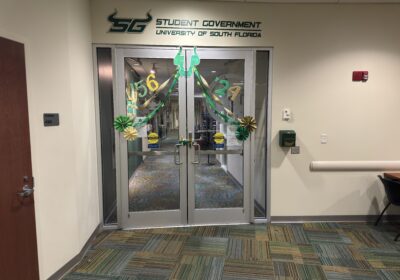Students uncertain about return to in-person classes
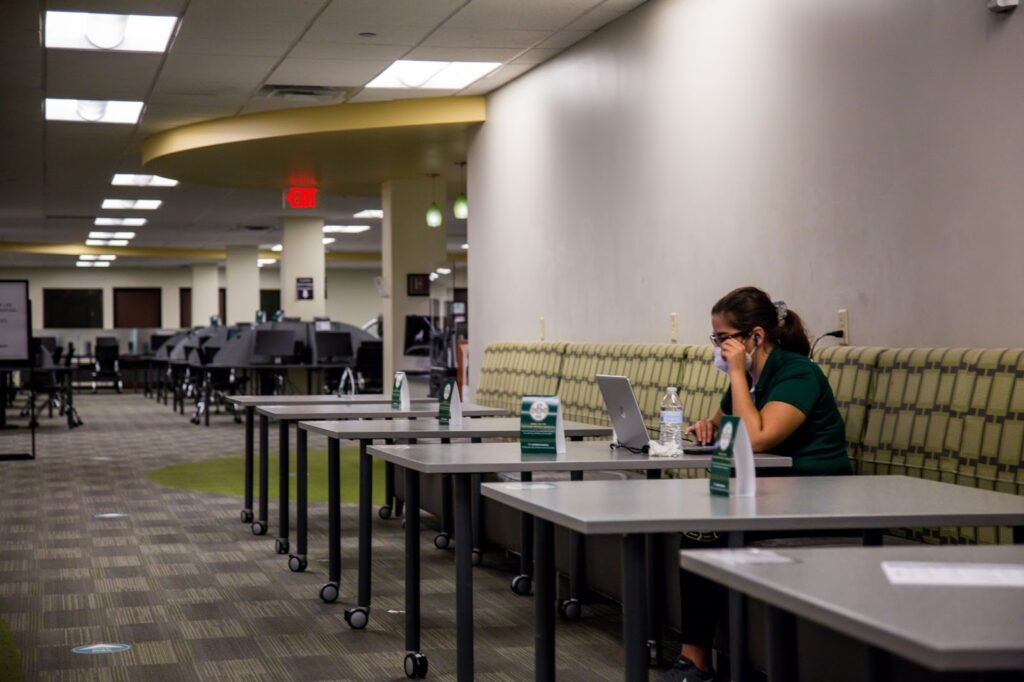
As a full return to in-person classes quickly approaches, a sense of uncertainty is an overarching feeling for many students. After being enrolled in mostly online courses for over a year, student responses to in-person social and academic settings remain unpredictable.
Beginning June 28, some students will face their first in-person classes in over a year with the rest experiencing the change in the fall. The university will be offering 77% of its courses in a traditional, in-person learning environment, 18% will be offered completely online and 4% will be available as hybrid classes across all three campuses in the fall, according to a May 26 article from The Oracle.
Josephine Chu, a licensed psychologist at the USF Counseling Center, said students may feel overwhelmed, excited or a mix of both emotions as they become reaccustomed to face-to-face socializing.
“I think some of the emotions that students are going to feel are anxiety, excitement and more than likely a combination of the two,” Chu said. “I imagine students might experience it as an adjustment period … for instance, to a more crowded campus, or to interacting in person with people again in the classroom as opposed to typing in a chat when they have something to say.
“On a more positive side, I think at the same time, a lot of students might also be looking forward to in-person interactions and feel excited about the change.”
Most of these feelings may start affecting students before they even step foot in the classroom, according to Chu.
“The other thing that I think might come up for students is what’s called anticipatory anxiety, which is some of those things that we wonder about and worry about, about all of the unknowns and changes that are coming up ahead of us, even before they happen,” Chu said.
Some students, like sophomore biomedical sciences major Riley Smith, are already feeling the “anticipatory anxiety.”
“Going from 100% online courses and living on campus where no activities were being held has caused me some anxiety for the upcoming school year,” Smith said. “I am very nervous about how I will be able to adapt this upcoming fall semester after being shut in for over a year.”
Sophomore Khushbu Patel noted the academic struggles many students may face upon their return to in-person classes and transition away from online work.
“We spent the beginning half of the pandemic learning how to do online classes, so taking in-person classes will definitely have a learning curve many students will go through,” Patel said. “Personally, I believe making friends after my freshman year will be hard, especially since I was home and didn’t get the opportunity to do so.”
While students might be feeling the impacts of the pandemic as they return to campus, each graduating class may also be coming in with completely different experiences.
Unlike juniors and seniors, incoming freshmen and rising sophomores will be going into the school year with little to no experience with in-person classes, which makes it hard to tell how each class will respond to their rapidly changing environments, according to Chu.
“It’s difficult to predict, as I think there will likely be a bit of both differences and similarities,” she said. “I think one thing that did stand out to me is the experiences of the sophomores, because while they’ll be returning, they’re really also starting fresh with the in-person experience and might be in a very similar place as their freshmen counterparts.”
Psychology major Aniyah Britton reflected on her feelings as a sophomore after a scaled-down freshman year. She said her experience at USF last year did not include any in-person classes.
“My experience [as a sophomore] is going to be very different because I’ve never had the chance to experience what it is like to walk to class or go to events,” Britton said. “Even living on campus was so different because I never really got to know the people who lived in my building, and there were a lot of limitations in place.”
Even though many sophomores haven’t experienced in-person campus life, some students feel the difference is minimal when looking at the greater picture. Junior Regan Brahler said her social experiences throughout the pandemic prepared her for in-person interactions.
“I feel that with all the changes that USF has made, this upcoming semester is going to be very different. However, I still try to meet with my friends safely and while following the safety guidelines, even throughout the pandemic,” Brahler said.
“Regardless of your class standing, as long as you’ve reached out to people, we’re all in the same boat.”
Even though each student’s experience may vary depending on their class, some students said they’ve been developing new or refined skills they can utilize in the coming semesters to get a leg up on their peers.
Junior Saloni Zobalia said quarantine allowed her to focus on self-improvement and further develop her social skills.
“I think that I have gained many communication skills throughout quarantine, through job shadowing and new work experiences,” Zobalia said. “This will allow me to interact with more people easily and create new relationships.”
Chu highlighted the fact that even living through the pandemic will allow students to come out the other side stronger than before.
“It takes a lot of resilience to survive and possibly even thrive during multiple concurrent pandemics that we have, and are still, going through,” Chu said. “I think resilience is definitely something that some students might have developed, and some students might have gained more clarity on what really adds to their life and what doesn’t.
“Most of us probably have had to learn to be adaptable and to increase our tolerance for ambiguity because things are constantly changing all the time. There were so many unknowns and scary things.”
Beyond utilizing these “quiet skills,” Chu believed there were multiple steps students could take to manage these anxieties. She said validating one’s self is the key to understanding feelings, and one should always recognize they are not alone in their emotions.
“It’s helpful to also understand, especially if we’re talking about anxiety, it usually makes us avoid the things that we’re anxious about,” Chu said. “It makes us imagine worst-case scenarios or run different scenarios through our heads. Before you know it, it becomes a much bigger thing in our head than it originally was.
“I think recognizing that the antidote to that is, fortunately and unfortunately, to break it down into smaller parts so that it becomes more achievable, and to confront the small parts one step at a time rather than shy away from it, because the more we shy away from it [the more] anxiety tends to grow over time.”
For students looking for counseling or other options to support them through the transition, Chu recommended a variety of free services at the counseling center available to everyone at USF.
“The counseling center offers a range of things, such as drop-in spaces like workshops all the way to something that’s more formal and regular like group or individual counseling or referral services. Our services are free and confidential,” she said.
“If you need something that the counseling center itself isn’t able to provide, we can still point you in the right direction or help you find something in the community.”
In preparation for the upcoming school year, some students are taking positive measures to ensure they put their mental health first. For Smith, keeping herself occupied over the summer is one way she plans to acclimate herself to the new changes.
“Some steps that I’m taking mentally are slowly forcing myself to create a schedule and a routine for myself,” Smith said. “I got a job this summer that requires me to wake up very early in comparison to my normal routine, so I plan on using it as a catalyst to help me get a better sleep and study schedule to prepare for the fall.
“The steps I’m taking will be extremely beneficial to putting myself on the right track, and I can’t wait to see what the upcoming school year is going to bring.”

